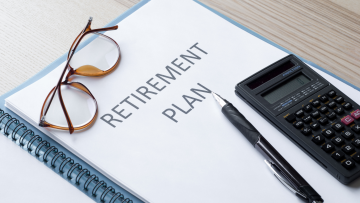Planning for retirement can be a daunting prospect under normal circumstances. But with COVID-19 wreaking havoc on the stock market and causing IRA and 401(k) balances to crumble, it can be hard to remain calm.
The world has been in a panic since the outbreak of Coronavirus, causing almost unprecedented market volatility. How should you react to the current state of the market, based on your retirement schedule? Here are a few tips that will help you keep your cool — and stay on course — as we navigate these uncertain times.
1. Be Flexible
A dramatic market plunge can delay your retirement depending on how long the decline lasts. While it’s too soon to tell when that recovery might happen or what it will look like, so the key is to be as flexible as possible. If you were planning to retire in 2020/2021, you may need to rethink that and give the market extra time to recover.
The key is to try not to focus on everything you’re currently giving up, rather focus on the new opportunities you might have by delaying your retirement age. For example, if you were planning to retire this year at age 66 and claim your full monthly Social Security benefit, delaying retirement for a year or two will allow you to boost that benefit and lock in a higher monthly payment for life. If you’re 55 planning to retire at 65, it may mean pushing to 67. It’s unlikely to mean 75.
There’s a lot of uncertainty in the world today, and when you’re trying to map out your retirement, it can make for a very stressful situation. The best thing you can do, therefore, is to stay calm and adjust your plans as necessary.
2. Cash is King
If the recent market crumble has taught us anything, it’s the importance of always having a cash reserve. Some investors may feel compelled to buy as much in stocks as they can while prices are down, but they also need to set some cash aside for emergency funds, as well as a pile they could draw down if they do retire soon.
Those nearing retirement should try to refrain from withdrawing from their retirement portfolios, as a way to protect themselves from the “sequence of returns” risk, which is when investors withdraw from their principals and not gains. Doing so potentially deflates any future returns.
Additionally, it’s important to have emergency savings for unplanned expenses or scenarios, whether it’s home repairs or the effects of a global health crisis. As well as having cash saved, it’s a good idea to have at least six months’ worth of essential living expenses in the bank.
3. Ask the Experts
The market has a strong history of recovering from downturns and letting investors who stay the course come out ahead, so don’t drive yourself crazy checking your IRA or 401(k) balance every other day. Instead, reach out to your retirement income planner for expert advice (if you don’t yet have one, now is the perfect time to begin working with a professional retirement income advisor). From advice on how to protect your 401(k), to types of annuities and diversifying portfolios, a financial advisor who specializes in retirement income planning can help you make the safest decision for your personal situation (after all, the last thing you want is to be making big financial decisions purely based on emotion).
Final Thoughts
Don’t let an unstable market derail your retirement goals. You might be forced to delay retirement or risk running out of money early—and it might take years to recoup your losses. However, the possible coming recession is likely to be short due to lowered interest rates. And government stimulus are also expected to help markets bounce back in the coming months.
As a firm specializing in retirement, CKS Summit Group can help you build a plan to reach your retirement goals while protecting your investments. To create your own personalized Retirement Income Plan, set up your complimentary strategy session with us here today.



